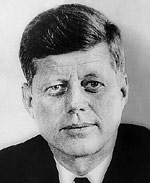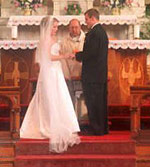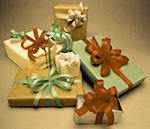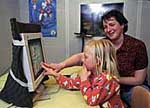Tip sheets highlight timely news and events at Washington University in St. Louis. For more information on any of the stories below or for assistance in arranging interviews, please see the contact information listed with each story.
Remembering Dallas
Flashbulb memories of JFK’s assassination may not be so accurate

On Nov. 22, 2003, the nation will mark the 40th anniversary of the assassination of President John F. Kennedy in Dallas, Texas. The 1963 event was so surprising and traumatic, that many people who were alive that day claim they can remember exactly where they were and what they were doing when they heard the news. However, an expert in collective memory at Washington University in St. Louis claims those memories may not be as accurate as people think.
Going to the altar pays off
Americans have the best chance of becoming wealthy if they marry but remain childless, study shows

Becoming wealthy and creating a happy family are two key components to achieving the American Dream, but do marriage and children have any impact on your chances of becoming rich? “Marriage substantially increases a person’s likelihood of becoming affluent,” says Mark R. Rank, Ph.D., professor of social work at Washington University in St. Louis and co-author of a study out this month that looks at earnings over the course of a person’s lifetime. “Having children, however, significantly lowers the probability of becoming wealthy for all people,” Rank adds.
Getting a grip on holiday shopping
Psychologist offers tips for stress-free gift buying

Whether it’s a last-minute rush to the mall or a year-long obsession, the quest for the “perfect gift” has the potential to turn holiday shopping into an annual nightmare. A psychologist at Washington University in St. Louis who is an expert on helping people gain control of personal habits, such as smoking and overeating, says many of the same techniques can be used to get a grip on holiday shopping.
From 60 minutes down to two
Faster, more practical hearing test for newborns developed

The marvels of mathematics may open the door to a new, improved hearing test for newborns. A mathematician and a recent electrical engineering doctoral graduate from Washington University in St. Louis have devised a hearing test that measures the auditory brainstem response 20 times faster than current methodology. The technique allows for testing on small digital machines that takes just two minutes instead of the hour current methods take, and volunteers instead of medical personnel can administer it. This bodes well for mandatory hearing testing of newborns within three years.